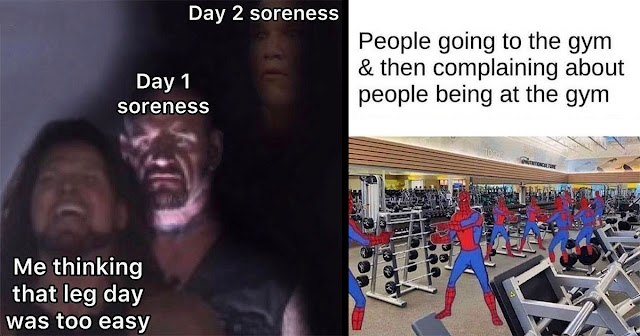Memes are quite possibly one of the best things in pop culture. if you're on Twitter, Instagram or even Facebook, chances are you will see a good number of memes on your feed throughout the day. Memes can have a trending photo/message, like Kurt Angle in December 2023, individuals can also create a personalize meme or just use older memes that was once popular and trending. Memes are usually pictures with limited text, where it can have a underlying message or have the literal meaning on the meme. I send and get sent so many memes throughout the day, it is once counted that over 1 million memes were getting shared daily in 2021, which doubled from the 500,000 in 2020.
 |
Sellnow would describe and fit Memes as an 'artifact,' "a sign or a series of sign that is socially grounded. Meaning it widely shared by some identifiable community or cultural group." Again, these groups or communities can be a variety of things like avid gym goers, there is an understanding across the board with a lot of different things such as language, mannerisms, unspoken rules and so forth. This leads to "ideology," where Sellnow defines as "cultural group's perception about the things are and assumptions about the way they ought to be. Again, it was also shared that "culture," can feel or even be elitist and those feelings can very much exist with those groups and communities
What makes memes special and hilarious are the relatability and stereotypes to those communities. It can serve as comic relief to the individuals or community. There is a saying that states, "behind every joke has a little bit of truth to it." With the explosion of social media, the accessibility of information and internet, how often do we get or see memes throughout the day that we identify with, especially among different communities we associate with.
Understanding Memes, do memes just reinforce stereotypes or cultures throughout society? Can perceptions or even the culture of those certain communities change?



Memes are the cultural currency of today's 20-somethings, teens and tweens. They share and trade them through text and chats and wait for a reaction. It's the new generation's version of watercooler chats of "did you see Seinfeld last night?" If you missed it, you couldn't participate in the conversation and you had to wait until a rerun to see it.
ReplyDeleteAs a 47-year-old year, my generation grew up with ABC, CBS, and NBC. To share a pop culture experience, one needed to "tune in" as a show aired live. My children are growing up with Youtube, Netflix, and TikTok. Their pop culture experience is to consume at one's own pace.
If everything is now available all the time. If you haven't seen the latest hilarious meme, someone will share it with you instantly. The pop cultural phenomenon of watching "must see TV" and having the fear of missing what everyone else was enjoying is now an outdated experience.